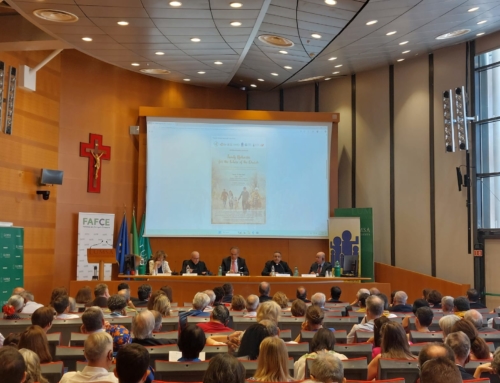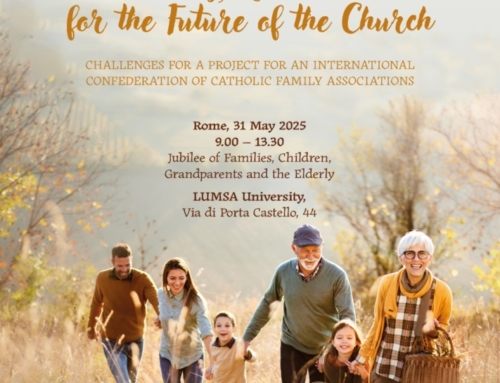FAFCE Board Resolution
Paris, 19 October 2022
Family unpaid care work: the heart of intergenerational solidarity
The European Commission recently proposed a European Care Strategy. In her 2022 State of the Union, the President of the European Commission, Ursula von der Leyen, declared that “it is time to enshrine solidarity between generations in our Treaties”. Our Federation wishes to recall that the unpaid care contribution of families is at the heart of the intergenerational solidarity and of the future of Europe, and represents the preliminary condition to any sustainable development.
Recalling the Council Recommendation proposal published by the European Commission on the 6th of September 2022, which includes a revision of the EU targets on early childhood education and care, also called ‘the Barcelona Targets’ (2002).
Recalling the 2019 Work-Life Balance Directive, in force since the 2nd of August 2022, which introduces four months of parental leave for each parent, two of which being paid and non-transferable; ten working days of paternity leave around the birth of their child; five days of carer leave per year, and the right to request flexible working arrangements.
Recalling the European Commission 2020 Report on the Impact of the Demographic Change, stating that “the need for solidarity between generations is one of the driving forces of Europe’s recovery”.
Recalling the European Parliament resolution of 29 April 2021 on the European Child Guarantee, calling on “Member States to ensure a strategic and comprehensive approach to implementing the Child Guarantee through adequate policies and resources, including through labour market integration, work-life balance measures for parents and guardians, and income support for families and households”.
Recalling FAFCE 2021 Board Resolution The Family is the Democratic and Demographic Future of Europe, “intergenerational solidarity and solidarity between families are the first examples from which political stakeholders can learn.”
Recalling FAFCE 2020 Board Resolution Family is the heart of the post-pandemic recovery, that called EU Member-States to “promote the intergenerational solidarity: all generations are interdependent and care for each other.”
Recalling Pope Francis’s words in the Laudato Si’ Encyclical “on ne peut plus parler de développement durable sans une solidarité intergénérationnel (159).
Our Federation
Notes the Commission’s proposal to increase formal childcare in Europe, with the objective to achieve 50% of children below the age of 3 in early childhood education and care, and 96% of children between the age of 3 and the starting age for compulsory primary education in early childhood education and care by 2030;
Rejects a one-sided solution to childcare in Europe, which, under the rightful wish to support the family-work life balance of parents, aims to ensure their maximum employment rate, at the expense of families and in the long run of the sustainability of our labour markets;
Calls the European Union and its Member-States to invest in informal care at least to the same extent as in formal care services. Families provide this service for free, and should thus be allowed to perform it in the best conditions and environment possible.
FAFCE calls all EU Member-States for concrete policy actions to:
- promote family-based taxation systems in order to prevent the unequal treatment of parents and carers;
- increase access to maternity, paternity and parental leaves for parents;
- grant full freedom to parents to decide on the division of the leave between the father and the mother;
- encourage flexible working arrangements for parents, such as telework, part-time, breastfeeding and nursery rooms; reward employers supporting part-time job opportunities for carers;
- legally recognise the right to disconnect and a work-free Sunday, as fundamental freedom of each person;
- recognise the unpaid care work as a category of work that grant:
- access to the labour market with time-flexible types of contracts;
- the recognition of soft skills acquired during the exercise of care;
- access to education, vocational learning and job reconversion;
- pension entitlements;
- fight prejudices and discriminations against stay-at-home parents, grand-parents and carers;
- implement national action plans of the Child Guarantee, taking into account the current context of increased energy prices and living costs;
- launch additional emergency measures for large families and families with a special needs









